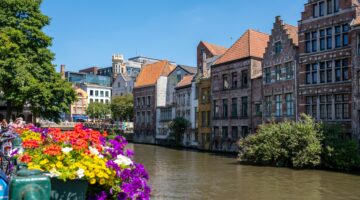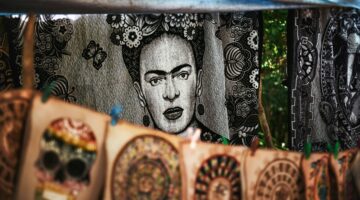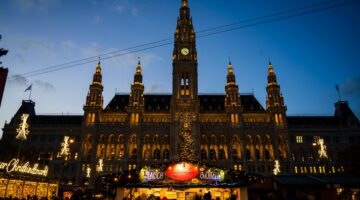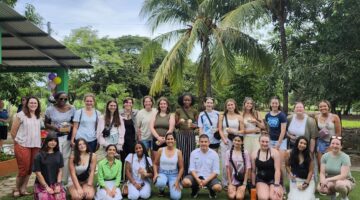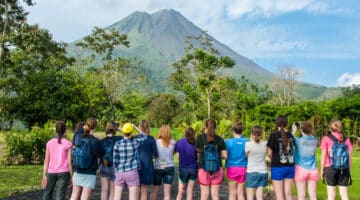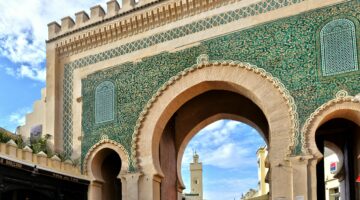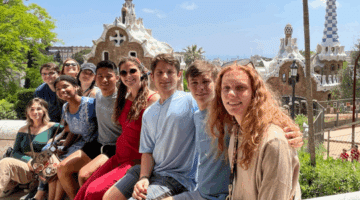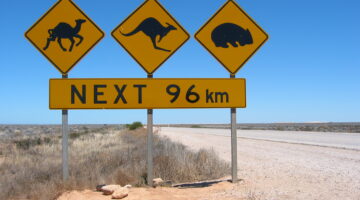How Things Are, and Might Be
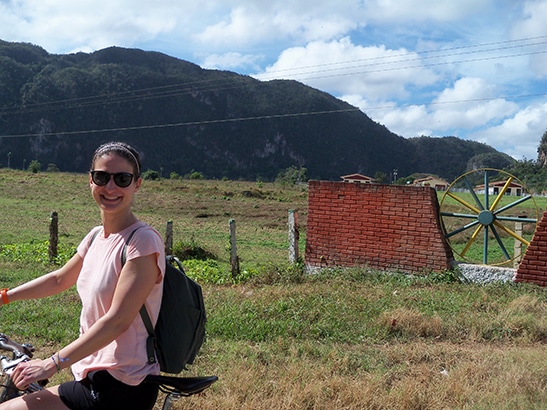
This is a guest post written by Giulia Dindo, an ACIS Tour Manager based in Dublin, Ireland.
Quarantine – this new word dominates our daily vocabulary and our way of life.
We are all living a new time, a time of deep thoughts, of new considerations, of uncertainty, of possibly new starts, from the shelter that our homes represent for us all, for our safety and for the safety of the community.
Every day I do my best to see the positive that this situation can possibly bring, it isn’t an easy task, it is utterly challenging because, let’s face it, it’s a crisis and it’s a new crisis that we don’t know how to face. We would all like to find a manual, hidden underneath that creaky floorboard in the attic, where at page 37 we read “How to fix a pandemic.”
But there is no manual yet, we are writing that manual. Every single entity of this world is the writer of our future, of someone else’s future and we are all liable for the ink that we will jot on the white pages of the world’s fate.
I came back to Dublin on March 12, having been lucky enough to finish a stunning tour around Greece, with a beautiful group that provided some distraction when the news from my homeland, Italy, was beyond being terrifying.
I came back here the day the Irish government decided to close the schools, into a stil- very-busy airport, followed by a 40-minute taxi journey with the radio tuned to a program talking non-stop about the big C. I came back to a new setting in my now 24/7 shared house, where one housemate was trying to learn how to use Zoom and the other was trying to cope on with the idea of her beauty business being closed “until further notice.” I came back to a country that went mad on toilet paper (yep!), where there was no flour and where yeast is, still now, less accessible than the hand sanitizer.
A few days later, the government shut the pubs and internet reacted marvellously, as usual, saying “They closed the pubs in Ireland, this must be serious”. And it was. In a matter of 4 days the city went still, the feeling was that we were all holding our breaths, without knowing what slowing down means.
I have been living in Ireland since 2012. I came here during the dark recession years and I embraced this city and made it mine, in every corner and alley, every bench and every “How are ya, luv” I heard. I saw this city change over six months, when the economic crisis seemed to be in the past and when those shops’ shutters that were always closed, started to open and new businesses flourished in the city. I saw this city of mine become alive, younger than before, more vibrant than before, scraping that sky with new tall buildings, facing new challenges, trying to keep up with the fast pace that the two-legged creatures imposed to it.
Traffic was suddenly too much, puzzling, dirty, loud.
We started to queue to have some overly priced brunch and some burnt coffee, to escape the city centre for a nice walk on the beach along with a thousand people that had the same brilliant idea, we started to wait for the next Luas (our tram, Luas in Irish Gaelic means “speed”) and then the next one, because they were so packed that not even a pin would have fit in there.
And suddenly, now, the silence of the city again.
So this is it: this is the city’s noise. I refuse to call it noise, it’s music: it’s the little birds that every morning between 5.15 and 5.40 am wake me up with their singing, it’s the incomparable melody of bike tires that spin on an empty road, it’s the beautiful sound of the running shoes on asphalt at 7 am, when the air is crispy but the sky is already blue. It’s the red foxes, maybe somehow confused, that come into town at 6 pm, because that’s when the city goes really quiet now.
It’s the children laughing in their gardens after home-schooling, or those two teenage boys that were playing with the frisbee in the middle of the road and the postman that does not complain about the increasing amount of posts to deliver but asks you if you are alright and if you need anything at all.
There is a sense of community into this staying apart that goes along with the big craving for a chat with your neighbour, keeping 2 meters distance. Maybe we have more time now to really mean a sincere “how are you doing”, either addressed to the guy next door, or to that friend we haven’t spoken to in long time.
My long-term thoughts during this time are a work in progress, but I certainly know that something has to change. We cannot go back to how things were because I personally didn’t enjoy that world.
A few nights ago, I cycled within the 5 km radius we are allowed to use to exercise and the city was absolutely unforgettable, even the air was silent. I had the opportunity to cycle carefree (and car free!) and to let my mind wander without thinking about keeping social distance because very few people were out at that time.
I thought about the feelings I had the months and years before this extraordinary time. How it felt to be always on the go by choice and I thought about how that night cycling with no cars around felt safe, comforting, new. That was a game changer because I started to notice that the air was cleaner, that the few noises I could hear were coming from very far, that I was giving myself the time to cycle around at 10 pm, with nowhere to go. How amazing. It felt like being on a holiday.
I travel for work; it is my choice of happiness and I wouldn’t change that for anything else. I truly, deeply believe that travelling, exploring and learning are the keys for a new future, but I also have the feeling that often, when we travel, we are pursuing a picture for our followers and a city to tick off our list, rather than seeking pleasure, calmness, stillness.
When I am on holiday, I don’t slow down. I keep my lifestyle “on the go”, backpacking, experiencing, exploring, meeting, eating, sunbathing and once again, it’s my choice and my happiness. However, in the months leading to the lockdown, I started to notice how this fast pace was sometimes too much, how Dublin’s vibrations weren’t positive anymore, how grumpy the holiday world was becoming.
During that night bike ride, I started to consider slowing down when we travel as well, to let us taste the new world we are about to discover.
I am slowly setting up my mind to how I can change my way of travelling and the first step came to my mind during an afternoon run: a bucket list of things that I do not want to do while travelling.
Why not? We are all focused on seeing, doing, going – maybe it’s time to decide alternatively, to let go while travelling, something that can help us and the world, perhaps. Maybe letting go of meat for the holiday, pausing our social media for a week, taking pictures like we only had 36 shots on our roll of film, or maybe no pictures at all?
We are changing our lives and adapting it to our neighbourhood, so why not avoid the “apparent” local and go local for real on our next trip? This means no Tripadvisor, no suggestions from the map on our phones, just our guts exploring a side alley, going to that bakery on the corner instead of the supermarket on the other side of the road.
How can we change our way of exploring the next city we will visit? I would scribble down “avoid crowds” on my list. Nearly a year ago, during a very hot day in Paris chatting with a teacher in my group, we thought about how amazing it would be to have the city for ourselves for a tour and we thought about how a tour at 4 AM would allow you to do that. I still have yet to find a group keen to join me in this adventure, but maybe, on our next trip, we can also consider a shift in our touring schedule towards quieter times of the day.
My mind is evolving around this idea, I’ve never written a bucket list before, I travel with my heart and I live in the moment, but I am also very aware of my dependencies in life that I carry on on my trips and I think it’s time for a change.
In times of crisis it’s hard to focus and to appreciate this tremendous gift that is Time. We find ourselves staring at the wall more often than we think, but perhaps the thought of a happy, new, different travel life could take our mind away from what is happening outside our doorstep. I leave you with the start of my list:
- No phone
- No multiple photo shots
- No crowds

